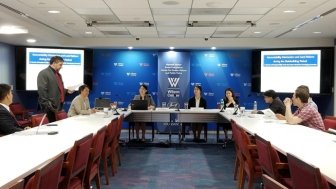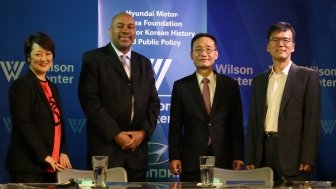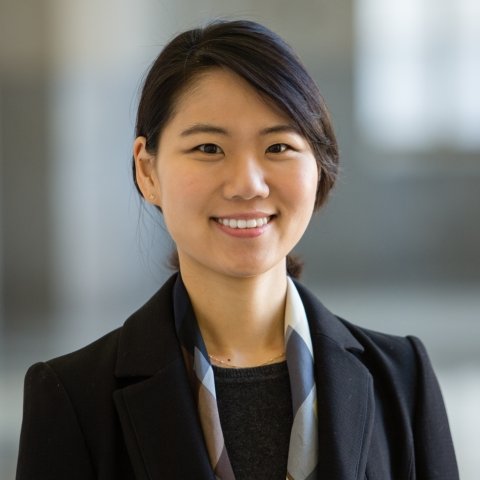Bo Kyung Kim
Former Korea Foundation Junior Scholar
Professional Affiliation
Ph.D. Candidate, Graduate School of International Studies, Seoul National University, South Korea
Expert Bio
Bo Kyung Kim is currently a Ph.D. candidate at the Graduate School of International Studies, Seoul National University (GSIS SNU). She received her Master’s degree in International Studies at GSIS SNU, and her B.A. in International Studies and Political Science & International Relations at Ewha Womans University. Before joining the Wilson Center, she took part in multiple research projects at the Institute of International Affairs GSIS SNU. In summer 2016, she was an exchange Ph.D. researcher at the University of Tübingen, Germany. She also presented in several international academic conferences, and co-authored articles in Korean journals. Her research interests include areas of International development, accountability, governance, state-building, foreign aid and other related topics. While at the Wilson Center, her project will be focused on accountability mechanism in developing countries with case study on East Asian countries during their land reform period.
Wilson Center Project
Accountability Mechanism for the Post-Land Reform Consolidation in the State building Period: In Search of Empirical Utility of the East Asian Model for Developing Countries
Project Summary
As many developing countries heavily depend on agriculture and hold a large tenant farming population, land reform is a crucial issue for its effect on expansive social rearrangement and socio-economic change. Although such reforms are commonly made with the presence of external actors or donors, previous studies on land reform in developing countries rarely focus on analyzing accountability mechanisms among actors involved. Thus, this research looks into East Asian countries (South Korea, Japan, Taiwan), where land reform was implemented under the US influence during their post-World War II state-building period. More specifically, accountability relations within and among the quasi-governments, rural land institutions, stationed US bases, and various domestic actors will be examined, in order to find initial conditions and endogenous factors that lead to institutionalization or foundations for long-term growth. In doing so, the research expects to devise an East Asian model that can be applicable to current developing countries.
Major Publications
“Accountability of the Post-2015 Development Cooperation Era: Issues and Prospects,” Journal of Korea’s Development Cooperation, No.1, 2015, pp. 49-58. (Co-authored in Korean; Correspondent)
“The Domestication Process of International Development Norms: Sustainable Development Goals (SDGs) and Policy Making for Domestic Implementation in South Korea,” Review of International and Area Studies, Vol. 25, No. 1, 2016, pp. 81-125. (Co-authored in Korean)
Insight & Analysis by Bo Kyung Kim
- Article
- History
2018 Korea Foundation Junior Scholars’ Final Presentations

- Article
Wilson Center and Institute for Peace and Unification Studies at Seoul National University Sign MOU


